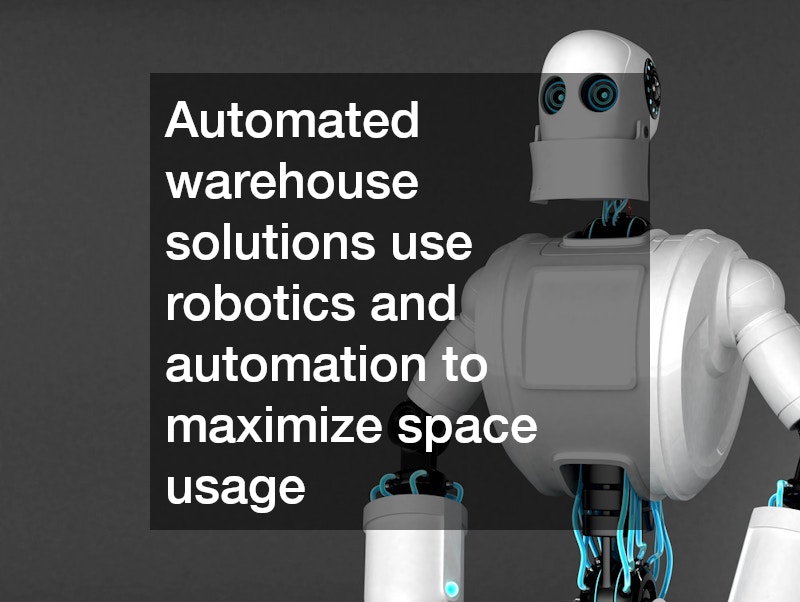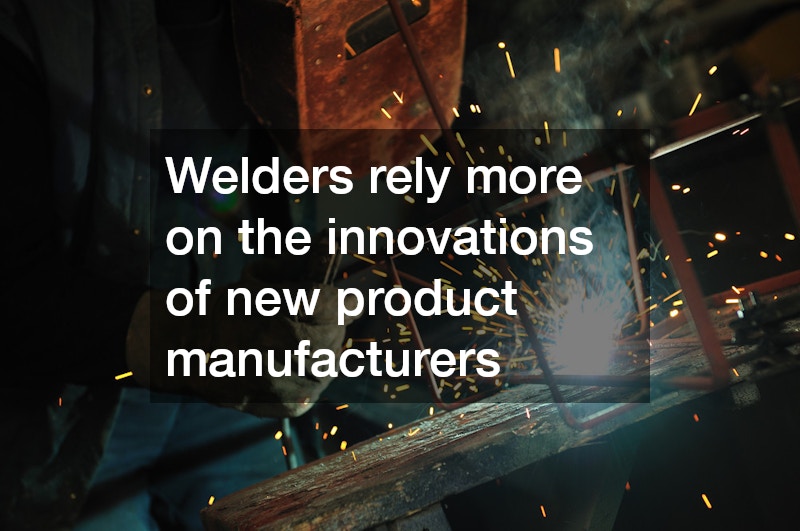It has never been so important to stay abreast of technological advances and innovations in today’s fast-changing manufacturing and service industries. Demand for better quality products and efficient services is increasing at an unprecedented pace. Companies face constant challenges and opportunities, from sophisticated custom CNC machines to state-of-the-art warehouse services. Manufacturers are constantly pushing the limits of what is possible and introducing revolutionary processes and products that redefine entire industries. The interaction between cutting-edge technology, such as precision engineering in carbon graders blades, or the fine workmanship of laser engraving services, demonstrates the increased synergy needed for modern industry success.
It’s crucial to understand how the new product manufacturers play a key role in changing market landscapes as we examine the current transformations affecting these sectors. These manufacturers drive industry progress by offering innovative solutions and pushing the boundaries of what machines and services can do. The industries of today are becoming increasingly interconnected. From the increasing use of battery-powered spreaders and utility trailers to the importance of local services such as welding and appliance repairs, today’s industries are becoming more and more interconnected. The success of a product or service is often dependent on the seamless integration of multiple elements. This could be in the form of cutting-edge technology, efficient service providers, or strategic logistic networks.
This article explores the wide range of industries that are currently experiencing these exciting transformations. We will examine the crucial role that new products and services play in meeting market demands and streamlining manufacturing. Our exploration will focus on the importance of local repair services and the rise of eco-friendly technologies like battery-powered machines. We will explore the latest technologies and processes that are driving today’s industrial landscape.
Precision Redefined: The Impact of Custom CNC Machines
Custom CNC machines revolutionize manufacturing by providing unparalleled precision and efficiency. These machines are able to reduce production time and increase accuracy by tailoring operations to specific tasks. Manufacturers of new products are constantly working to improve these systems by integrating cutting-edge software and hardware features.
Custom CNC machines have allowed businesses to produce components that are complex with high accuracy. This flexibility improves the efficiency of production, but it also allows for new and innovative solutions. The manufacturers are no longer restricted by existing machine specifications. This leads to a dynamic production environment.
Sustainability and energy efficiency are becoming increasingly important as manufacturers of new products explore the potential of CNC technology. Manufacturers can contribute to a more environmentally friendly manufacturing process by developing machines that use less energy and produce less waste. The industry is continuing to push forward and find new ways to optimize technology.
Utility Trailers: Evolution in Design and Functionality
Utility trailers play a vital role in many industries, allowing for the transport of equipment and goods. The demand for reliable and robust trailers is growing, whether for small businesses or large corporations. Manufacturers are developing utility trailers with enhanced safety features and load capacities.
Utility trailer innovations have been focused on material and design improvements. The use of lightweight yet durable materials allows for increased fuel efficiency without compromising strength or resilience. These innovations are proof of the industry’s commitment to meeting explicit customer needs and aligning them with modern sustainability goals.
Utility trailers also have smart technology features, like advanced brake systems or GPS tracking. These features not only enhance the functionality of trailers, but also the user’s experience. The industry’s dedication to innovation and improvement is evident in the evolution of utility trailer manufacturing.
Revolutionizing Supply Chains: The Role of Modern Warehousing

Manufacturing warehouses have evolved beyond a simple storage solution to become an integral part of the supply chain. Inventory management systems are now included in efficient warehousing, helping to streamline operations and cut costs. The development of technology to enhance these services is a key role for new product manufacturers.
Automated warehouse solutions use robotics and automation to maximize space usage and product retrieval. It not only reduces human error but also speeds up the handling and retrieval of products. Integration of digital inventory allows real-time tracking. This reduces unnecessary delays, and improves overall supply chain efficiency.
Manufacturers of new products are focusing on customizing solutions for specific clients as warehouses become increasingly technologically advanced. The industry has adapted to the needs of consumer goods logistics by implementing scalable storage systems and energy-efficient facilities.
Carbon Grader Blades: Durability Meets Sustainability
Carbon graders are indispensable tools for construction and road maintenance. Their efficiency has a direct impact on project outcomes. New product manufacturers have made the development of high-performance, durable blades a priority. Companies focus on increasing the durability and effectiveness of blades. This leads to more cost-efficient operations.
Carbon grader blades are now produced using advanced manufacturing techniques that have a greater resistance to wear than previous versions. These blades are more durable, reducing the need for replacements. This leads to significant cost savings. These developments are essential to ensure that infrastructure projects run smoothly and with minimal interruptions.
Manufacturers of new products are experimenting with eco-friendly processes and recyclable materials in the production of blades. These initiatives, which are aligned with global sustainability goals, will reduce the carbon footprint in the construction industry as environmental concerns become more important.
Laser Engraving: Precision and Personalization in Manufacturing
Laser engraving services have seen rapid growth in recent years due to their applications across a wide range of industries, including arts and crafts and industrial manufacturing. Laser engraving is a great option for companies that need to create intricate designs. Manufacturers of new products are leading the way in developing technology that improves these services.
Recent laser engraving innovations have focused on improving speed and accuracy. Advanced software allows machines to quickly convert intricate designs into engravings with high precision, while reducing production time. This allows businesses to offer customized products in a short time frame.
As the demand for customisation grows, so too does the availability and variety of materials that are suitable for laser engraving. Manufacturers of new products are constantly expanding the substrates that can work with laser technology. This gives clients a wider range of creative options. In an age where customization is a key competitive advantage, this versatility is essential.
Battery-Powered Spreaders: Green Technology in Action
Battery-powered spreaders have transformed maintenance tasks by offering a convenient, environmentally-friendly alternative to gas-powered devices. Battery technology has improved the performance and reliability of these spreaders, which are vital tools for agriculture and landscaping. The manufacturers of new products are crucial to the improvement of these tools.
Battery-powered spreaders are more efficient, have longer battery lives, and charge faster. This improves productivity and reduces downtime, making them a good option for industries that rely on fast, consistent operations. The shift to battery-powered devices is part of the industry’s trend toward minimizing environmental impact and maximizing efficiency.
Manufacturers are now focusing more on the user’s needs in spreading machines. These machines are easier to use thanks to ergonomic improvements and intuitive controls. These innovations show the power of modern technology to simplify and improve the user’s experience.
Innovations in Towing Services: Efficiency and Safety Upgrades
Towing services can be used in many different sectors. From helping stranded cars to transporting heavy equipment, they are essential. Manufacturers are constantly introducing new innovations in order to make the towing process more efficient and safe for operators and clients. The development of advanced towing vehicles and equipment is part of this.
Towing services have become more efficient thanks to technological advancements like hydraulic lift systems and automatic coupling mechanisms. These improvements make towing safer and faster, and reduce the risk of damaging vehicles and equipment. Integration of these technologies is crucial in order to meet the increasing demand for reliable solutions.
Manufacturers are investing in digital solutions that enhance the towing experience. GPS tracking and digital systems for fleet management and communication with customers allow better coordination of the fleet and improved customer service. These tools help towing services meet the modern expectation of transparency and timeliness in their operations.
Appliance Repair: Advanced Tools for the Modern Technician
The demand for professional appliance repair services increases as household and commercial appliances get more complex. Manufacturers are responding to this problem by creating advanced diagnostic tools and programs for technicians that will equip them with the necessary skills to repair modern appliances.
Innovative diagnostic tools are designed to work directly with smart appliances. These tools allow technicians to identify and solve issues quickly, reducing repair time and increasing customer satisfaction. It is especially important because consumers are adopting smart home technologies that require a higher level of technical expertise.
Manufacturers are focusing not only on new technologies but also on modular designs of appliances that simplify the repair process. They extend the life of appliances by making it easier to repair or replace components. This trend reflects the growing preference of consumers for durable and sustainable products.
Welding Innovations: Safety and Precision for Local Welders

With the introduction of new materials and technologies, the welding industry has seen significant changes. Local welders rely more on the innovations of new product manufacturers to remain competitive and meet client expectations. These advances allow for greater precision and cleaner results when welding.
Manufacturers are introducing new equipment with enhanced features, including improved portability and power efficiency. These innovations are vital for local welders, who need flexible and reliable tools to perform diverse tasks, from automotive repairs to complex industrial tasks. Local welders adapt to new technology as it evolves.
Manufacturers are developing integrated systems and protective gear that reduce risk when welding. These products are not only designed to ensure welder safety, but also improve quality. They reflect the industry’s commitment in combining the latest technology with the welfare of users.
Compressed Air Systems: The Backbone of Modern Industry
The industrial compressed air system is the backbone of modern manufacturing. It provides power for many applications. New products are being developed to meet the increasing demand. These advancements are essential to meeting the operational requirements of businesses in all sectors.
Compressed air solutions have reduced their environmental impact and operating costs by using energy-efficient air compressors. These innovations are crucial for industries that want to improve sustainability without compromising performance. These innovations are driven by new product manufacturers, who ensure that industrial applications remain viable.
Manufacturers are also focusing on improving their predictive maintenance capabilities to reduce system downtime. Businesses can avoid costly shutdowns by integrating AI-driven analytics and sensors to predict potential failures. This proactive approach is changing the way industrial compressed air systems (ICSAs) are managed and maintained.
This comprehensive examination of the modern manufacturing landscape and services highlights the relentless pursuit by manufacturers of new products of innovation. Introduction of cutting-edge systems and technologies has transformed many sectors, ranging from CNC machining services to appliance repair. The market is experiencing unprecedented growth with the introduction of utility trailers and carbon grader blades.
Each section examines how manufacturers are critical to the evolution of technology and to meeting consumer expectations. These advances in the industry, whether they are aimed at improving towing efficiency or laser engraving precision, show that the entire industry is committed to sustainable, futuristic solutions. It’s clear that, when exploring battery-powered spreaders or industrial compressed air systems for example, the industry is focused on improving functionality and minimizing the environmental impact.
The interplay between sustainability, customization, and technology is expected to continue shaping these industries as we move forward. This article highlights the importance of innovation and adaptation but also encourages stakeholders to anticipate future trends. Manufacturers and service providers work together to navigate the complexity of modern demands. They ensure that solutions are both efficient and cutting-edge as the consumer’s needs change.